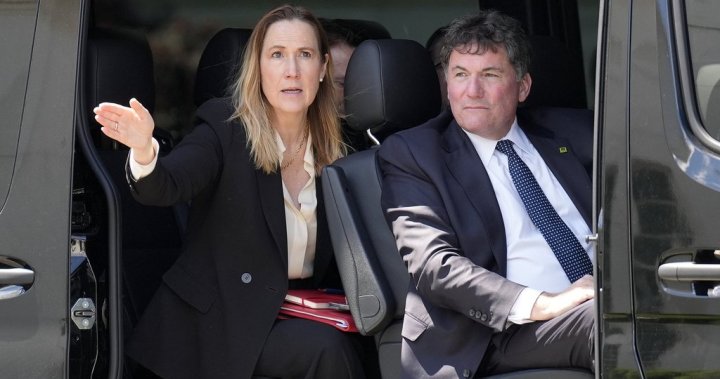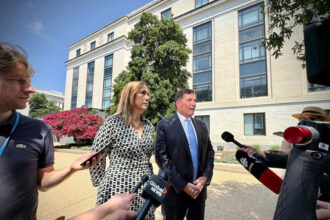In a pivotal move that signals Canada’s intensifying focus on U.S. trade relations, Prime Minister Justin Trudeau has appointed veteran trade negotiator David Morrison as the country’s new ambassador to Washington. This strategic appointment comes at a critical juncture as bilateral economic tensions simmer and protectionist policies gain momentum south of the border.
Morrison, who previously served as Deputy Minister of Foreign Affairs, steps into one of Canada’s most consequential diplomatic roles following the departure of Kirsten Hillman. His appointment underscores Ottawa’s determination to navigate increasingly complex trade dynamics with its largest trading partner, where approximately 75% of Canadian exports are destined.
“The Canada-U.S. relationship remains our most important bilateral relationship, bar none,” Trudeau emphasized during the announcement at the Canadian Embassy in Washington. “David Morrison brings decades of diplomatic experience and negotiating expertise that will be invaluable as we work to strengthen our economic ties while protecting Canadian interests.”
The appointment comes amid growing concerns about the potential return of Trump-era trade policies. Former U.S. Trade Representative Robert Lighthizer recently published a book advocating for aggressive tariffs against trading partners, including Canada—a perspective that has gained traction among both Republican and Democratic lawmakers.
Industry experts view Morrison’s selection as a calculated response to these challenges. “We’re seeing a pronounced shift toward economic nationalism in American politics,” notes Elizabeth Kingston, senior fellow at the Canadian Global Affairs Institute. “Morrison’s background in multilateral negotiations gives Canada an experienced hand at precisely the moment when trade relations could become substantially more complicated.”
Morrison inherits a portfolio of unresolved issues, including ongoing disputes over softwood lumber, dairy market access, and digital services taxation. The existing United States-Mexico-Canada Agreement (USMCA) is scheduled for its first review in 2026, adding further pressure to address contentious elements before formal negotiations begin.
According to CO24 Business analysis, approximately 1.8 million Canadian jobs depend directly on exports to the United States. This economic interdependence has historically provided Canada with leverage in negotiations, but American domestic politics increasingly threatens this relationship as both major U.S. parties embrace more protectionist platforms.
“What we’re witnessing is a fundamental realignment of trade philosophy in Washington,” explains Dr. Amelia Rodriguez, Professor of International Trade at the University of Toronto. “Morrison will need to craft a nuanced approach that acknowledges legitimate American concerns while firmly defending Canadian economic sovereignty.”
The new ambassador’s appointment has received broad support across Canada’s political spectrum. Opposition Leader Pierre Poilievre issued a statement acknowledging Morrison’s qualifications while urging the government to take a more assertive stance on trade enforcement.
“Canada has historically been too passive in defending our economic interests,” Poilievre stated. “While Morrison is well-qualified, his success will depend on whether the Prime Minister gives him the mandate to pursue a more robust approach to trade negotiations.”
Morrison brings substantial diplomatic credentials to his new role, having previously served as Assistant Deputy Minister for the Americas and represented Canada in numerous international forums. His expertise in multilateral diplomacy will be tested immediately as he manages not only trade concerns but also cross-border issues ranging from migration to continental defense.
As global supply chains continue to evolve in response to geopolitical tensions, Canada faces mounting pressure to diversify its trade relationships while preserving privileged access to the American market. This delicate balancing act will define Morrison’s tenure and potentially reshape Canada’s economic future.
The question now facing Canadians is whether Morrison’s diplomatic experience will be sufficient to protect vital economic interests in an era when international trade has become increasingly politicized. Can Canada maintain its special relationship with the United States while simultaneously preparing for a future where economic nationalism may become the new normal?


















